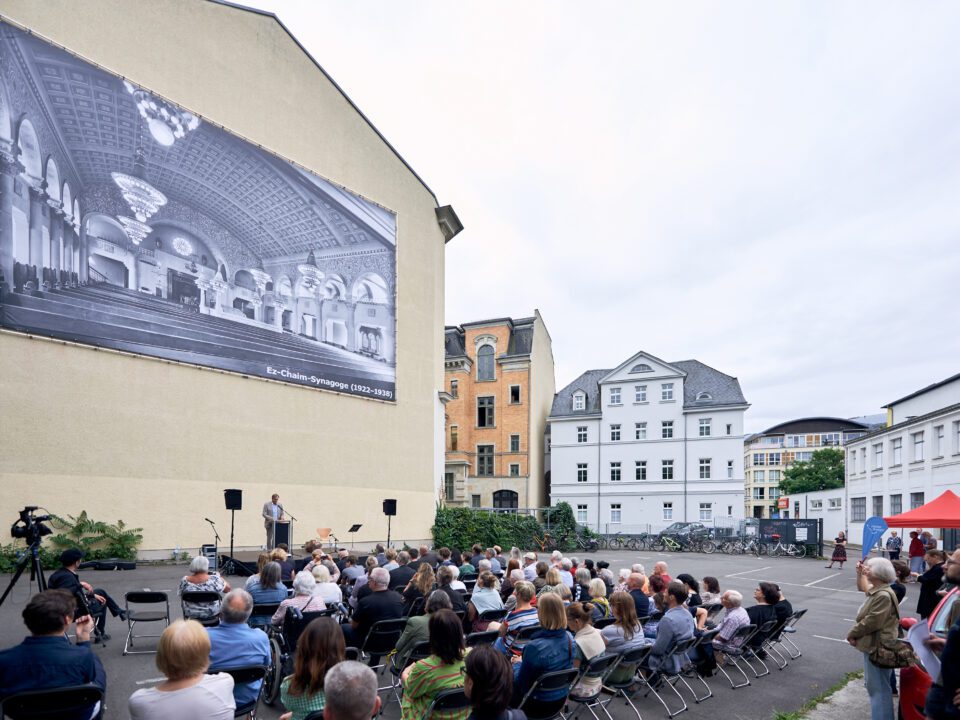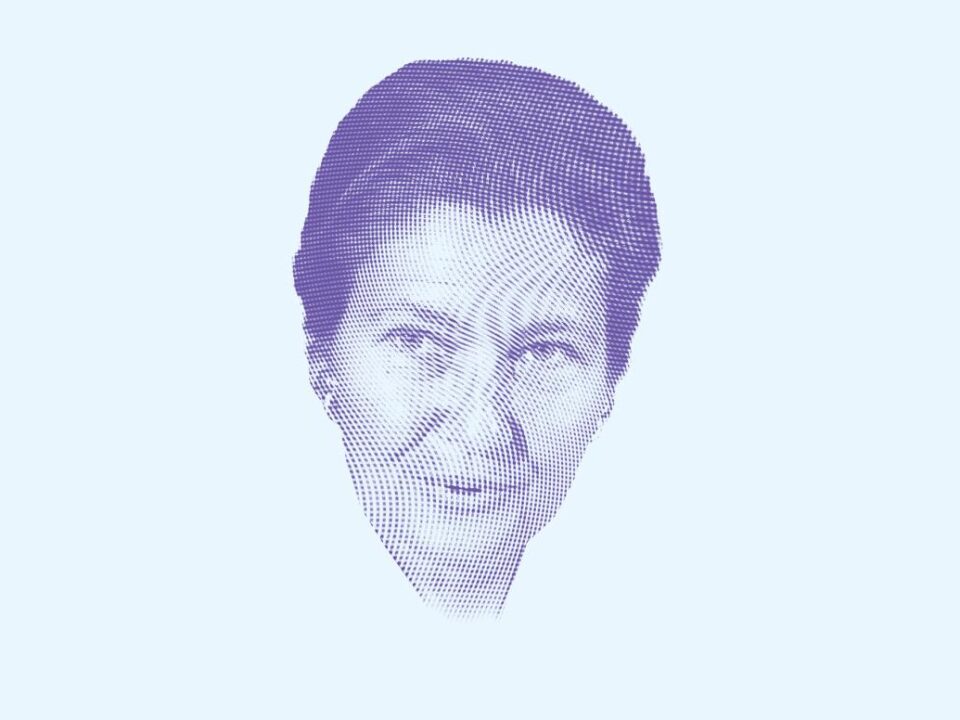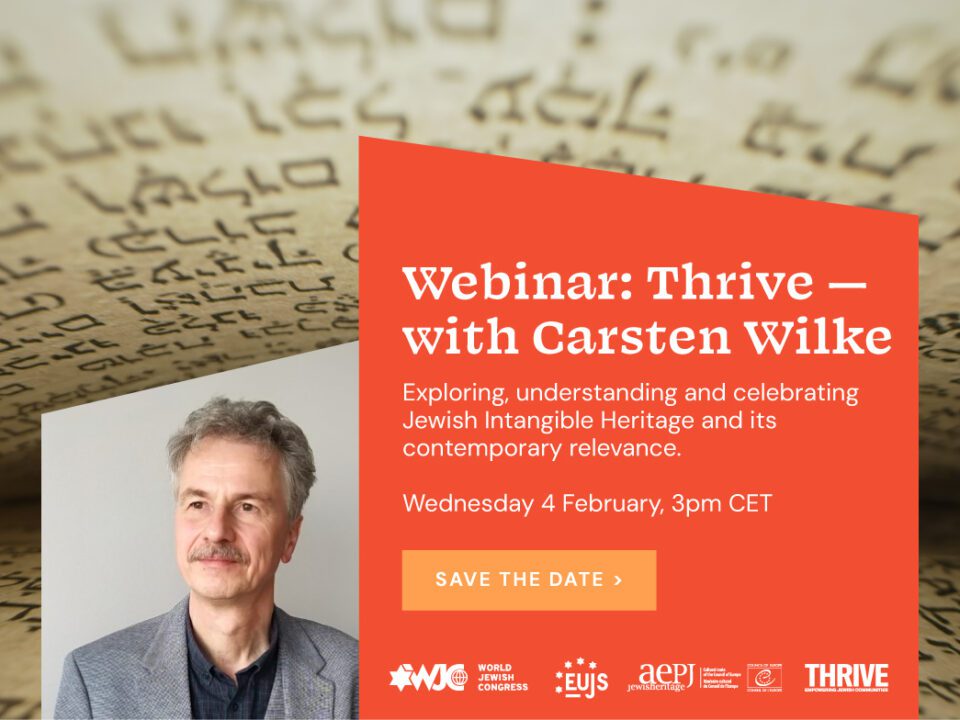Meeting Ms Judith Kiriaty-Matalon, new member of the AEPJ board

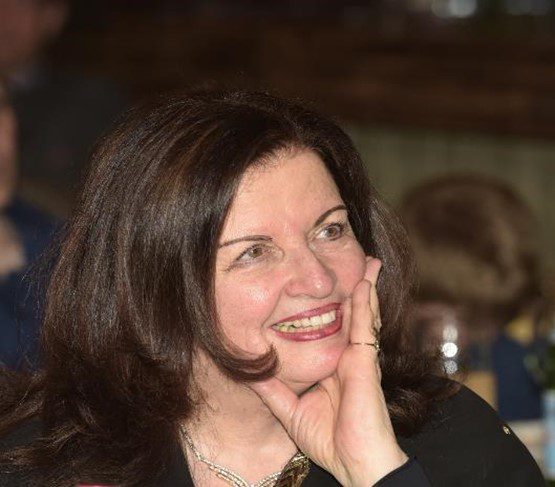
Judith Kiriaty-Matalon. President of the Kiriaty Foundation. Tel Aviv, Israel.
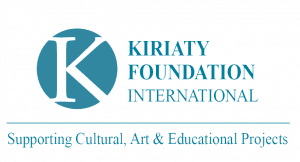 Ms. Judith Kiriaty-Matalon, president of the Kiriaty Foundation, leads the work of this international foundation supporting various humanitarian, educational and cultural projects. Member of the AEPJ since 2019, the foundation has supported and participated in many of the AEPJ’s projects and has encouraged the development of remarkable endeavors in the recovery of European Jewish heritage. In 2020 we interviewed Ms. Judith Kiriaty-Matalon about this work. 3 years later, and on the occasion of her recent election as a member of the AEPJ Board at the Association’s General Assembly 2022 in Hanover, Germany; we interviewed Ms. Judith Kiriaty-Matalon again to find out her expectations and vision for the AEPJ in the coming years.
Ms. Judith Kiriaty-Matalon, president of the Kiriaty Foundation, leads the work of this international foundation supporting various humanitarian, educational and cultural projects. Member of the AEPJ since 2019, the foundation has supported and participated in many of the AEPJ’s projects and has encouraged the development of remarkable endeavors in the recovery of European Jewish heritage. In 2020 we interviewed Ms. Judith Kiriaty-Matalon about this work. 3 years later, and on the occasion of her recent election as a member of the AEPJ Board at the Association’s General Assembly 2022 in Hanover, Germany; we interviewed Ms. Judith Kiriaty-Matalon again to find out her expectations and vision for the AEPJ in the coming years.
As a complement to the interview below, we are pleased to share the publication The Jews of Smyrna – Remembering through Reconstruction, produced as part of the restoration project led by the Kiriaty Foundation. The book offers an in-depth look at the unique complex of Sephardic synagogues in Izmir’s historic Jewish quarter, weaving together historical research, photography and personal narratives. More than a record of architectural restoration, it is a testimony to the enduring legacy of Jewish life in the city and a reflection on the power of heritage to foster cultural memory and renewal.
AEPJ: Ms. Judith Kiriaty-Matalon, in 2019 your foundation became a partner of AEPJ with the aim of promoting European Jewish heritage. How do you assess the work done so far in these three years ?
Judith Kiriaty-Matalon: The AEPJ activity that I was exposed to was in two areas: the European Days of Jewish Culture, and the European Routes of Jewish Heritage sites. These are two important activities to get to know the heritage of Jewish culture in Europe, both for Jews to deepen their connection with their roots and for the non-Jewish population to get to know a culture that lived and flourished in their environment, the values that this Jewish culture can impart, and Jewish history in relation to the general history of Europe.
AEPJ has developed these activities among the communities, organizations and institutions that are members of AEPJ. There is no doubt that these activities have led to the strengthening of the connection of the Jewish communities with their Jewish roots, to the strengthening of ties between all those interested in preservation of Jewish culture in different countries, and to the familiarity of the general population with the Jewish civilization that has existed alongside them for thousands of years. By doing so, to also understand and accept the other and the different.
AEPJ: The last 2 years have been a real challenge for the cultural and tourism sector, so hard hit by the COVID-19 pandemic. What initiatives to address this challenge do you think are worth highlighting?
Judith Kiriaty-Matalon: Indeed, it is very difficult and almost impossible to hold tourist activities during times of pandemics, endangering the lives and health of locals and tourists. Luckily for us, humanity has developed the means of internet communication that can help in dealing with this challenge. I expressed my opinion on this subject to the initiator of AEPJ’s heritage tourism routes: Pavel Katz and to Prof. Yoel Mansfeld and emphasized to them the importance and need of preparing virtual tours for those heritage sites.
Today there is technology that enables 360-degree photographing that gives the viewers a realistic tour experience and the possibility to get to know the heritage sites from their home anywhere in the world, as if they were there, walking in the real physical place. During pandemic, these virtual tours will make the Jewish heritage sites accessible and allocate them to populations on a largest scale., and on days when pandemic is over. these virtual tours have also the potential to arouse curiosity and the desire to visit physically the sites themselves. Virtual tours can also be distributed for a fee to cover the costs of their preparation.
Virtual tours and their distribution through AEPJ, will encourage more institutions to join as members of AEPJ, thereby strengthening Jewish heritage positioning and status in greater Europe.
At the same time while developing virtual tours, there is need to address the risk of stopping AEPJ’s main activities based on tourism and consider developing additional activities that do not depend on tourism ,and are not affected by pandemic, so that during periods of pandemics AEPJ can continue its activity.
AEPJ: Last June, during the AEPJ General Assembly in Hanover, you decided to run as a new member of the AEPJ Board of Directors. Could you share with us the motivation for this decision?
Judith Kiriaty-Matalon: The activities of the AEPJ are extremely important for positioning and strengthening the status of the Jewish presence and Jewish cultural heritage in Europe. Also, to the awareness of the general grater European population and its attitude towards Jews .
The activities of the AEPJ so far have been done in the right direction, I see possibilities to expand and increase these activities and I thought that in light of my experience in managing a major philanthropic foundation for the benefit of the public during 40 years, I can assist the AEPJ expanding its important and cultural influence.
AEPJ: What role do you think the Kiriaty Foundation can play in this new configuration of the AEPJ board of directors?
Judith Kiriaty-Matalon: The Kiriaty Foundation can bring to the board its experience and ability in initiating new projects whose goals are similar to the goals of the Foundation, especially considering AEPJ’s need to expand its activities among other institutions, organizations, and communities in greater Europe.
AEPJ: How do you assess the current state of the association and what challenges do you think we will face in the coming years in the field of the promotion of European Jewish heritage?
Judith Kiriaty-Matalon: The AEPJ has made an important path since its establishment 18 years ago and has gained experience in strengthening Jewish heritage in Europe.
I see five challenges the AEPJ might face in the coming years:
- The first challenge is the vision to expand its influence and provide its services to more institutions, communities, and organizations in greater Europe. The possibilities of AEPJ’s expansion are substantial, as they are so many Jewish heritage sites in Europe. The Foundation for Jewish Heritage based in London prepared few years ago a survey and found 3340 Jewish heritage sites in greater Europe still exist including those survived World War II. All of them provide evidence of historical Jewish presence and the rich Jewish culture existed in Europe that are worthy of preservation and strengthening.
- The expansion of AEPJ’s activities will require additional budgets and presents AEPJ with the second challenge of strategic thinking on how to raise these additional budgets. The AEPJ’s budget is mainly allocated so far by European establishments. It is recommended to develop strategy to address private donors and other institutions to support financially the AEPJ. This may leverage the AEPJ’s budget significantly and allow greater impact of its activities.
- The third challenge is dealing appropriately with anti-Semitism based on racist ideas which, unfortunately, still exist and active in Europe. To the extent that this do not become stronger in the future, it may pose the most difficult challenge to AEPJ. With all the important actions that AEPJ is taking to combat anti-Semitism through NOA, there is room for exploring extended cooperation with other organizations that put fighting antisemitism on their agenda.
- The fourth challenge in this regard, I want to mention again the outbreak of pandemics that may harm tourism as explained above. The way to deal with this is as said before, by preparing virtual tours and by initiating additional projects that do not depend on physical encounters.
- The fifth challenge I would say is strengthening the connection of European Jews to their heritage, especially to make the Jewish youth familiar with their own cultural heritage, and with the history of their ancestors. To strengthen their connection to their roots, and to strengthen their pride in their rich culture. It seems that many of European Jews, lake sufficient knowledge about their own history. The way to deal with this is through increased awareness to their heritage by creating and marketing of touring of Jewish historical sites. Noting Jewish contribution to general society will increase their pride in their own heritage and will strengthen their connection to their roots which has great importance in their Jewish identity.
AEPJ: What do you think is (or should be) the role of Jewish culture and heritage in European and international society?
Judith Kiriaty-Matalon: For hundreds of years since the conquest of the Land of Israel by the Roman Empire, and the exile of the Jews from their homeland over two thousand years ago, Jews’ life was involved in the European general population’s.. They brought their cultural heritage and religion customs to the places where they lived, developed their way of life alongside the local culture, created and enriched the local culture and economy where they lived. Their history developed along with the history of the societies they lived in.
Therefore, getting to know Jewish culture and history by non-Jews will result in a better understanding of non Jews own history and culture.
Strengthening Jewish heritage in Europe has several important roles in European and international society:
- Allowing non-Jewish population to get to know closer the Jewish culture and history that developed alongside them and to understand minorities living among them. To realize the disasters and injustices that were caused to the Jews in the past so that it will not repeat itself in future generations.
- To broaden the cultural horizons of the general non-Jewish population by getting to know a different culture (Jewish). Understanding that humanity that is made up of a mosaic of cultures will respect the differences and enjoy additional cultural values.
- During the history the Jewish communities and individuals Jews were always loyal to the nations in which they lived and humbly accepted all the restrictions imposed on them. History has proven that European countries that allowed equality of rights, freedom of culture and worship for their Jewish minority, enjoyed cultural and economic prosperity during those periods. Therefore realizing that by encouraging tolerance and respect for minorities, will strengthen their economic and cultural prosperity.
- These days, when a terrible war is taking place in Eastern Europe, which its roots are based on lack of respect for the rights of others, especially the right for life, and lacking sense of value to human life, – The need for tolerance towards minorities is felt more than ever. Recognition of the Jewish minority’s culture and values by the general population especially the supreme Jewish value of human life, are extremely important today.
AEPJ: The Kiriaty Foundation has always supported unique projects and initiatives, could you share some of them with us?
Judith Kiriaty-Matalon: Since its establishment in 1982, the Kiriaty Foundation has supported and continues to support many educational and cultural initiatives.
Two main projects that the Foundation has initiated and continues to manage and support:
Establishing Academy for Peace in the Negev, managing and supporting its activities
One of the important initiatives that the Foundation has initiated is the Academy for Peace by running courses and seminars for peace studies. This academy includes five main faculties:
Ecology and peace with earth, Peace between states and nations, Peace between societies, Peaceful human relationships, and Inner peace. The studies include joint activities for Arab and Jewish youth. Bringing together Jewish and Arab youth from different sectors in Israel for mutual acquaintance, mutual understanding and learning about each other way of life.
The Kiriaty Foundation, which supports educational and cultural projects in Israel, has joined forces to promote this wonderful initiative together with institutions who share similar vision.
The principles of the Peace Studies Initiative, are based on Studies of the essence of peace, elimination of racism, increasing tolerance and harmony.
Restoration of historic Izmir synagogues and establishing the Izmir Jewish Museum for inter-religious understanding
Another important project initiated by the Kiriaty Foundation is an international project for the preservation and restoration of a district of historic synagogues-centuries-old in Izmir Turkey, that were in danger of extinction; This by establishing a living museum of Jewish heritage and a center for inter-cultural dialogue and inter-religious understanding, within the Synagogues’ site, this with the aim of saving Izmir Jewish heritage by the preservation of Izmir Synagogues. In Izmir, a district of ancient synagogues located one next to another and been preserved to this day. They are reflecting on an ancient heritage of Jewish deportees from Spain. The Mordechai Kiriaty Foundation initiated this international project 13 years ago. We did so, understanding the importance of saving the cultural heritage and history of Sephardic Jews including the story of deportation from Spain, and making it accessible to the Izmir Jewish community and to the general society in Turkey. To date, 7 out of 9 Synagogues in this complex have been restored and preserved, and preparations are being made to turn this complex into a living museum.
AEPJ: Give us your prediction: If you were to imagine the state of European Jewish culture in 20 years’ time, what would it look like?
Judith Kiriaty-Matalon: The state of European Jewish culture and the state of the AEPJ, in 20 years’ time, depends on two main factors:
- The political and economic developments in Europe in the next 20 years.
- The management of AEPJ’s activities during these 20 years and its ability to foresee the challenges expected and its ability to face them successfully.
In an ideal world, I would like to see in the 20 coming years dramatic expansion of AEPJ membership by a variety of institutions, Jewish and non-Jewish. This will enable the AEPJ to increase its power and influence, which will strengthen the position and status of Jewish heritage and those who devote their time to strengthen it in Europe.
I would like to see increase in Jewish and non-Jewish youth interested in learning about the rich cultural heritage and history of Jews in Europe, Jews becoming stronger and prouder of their connection to their heritage. For non-Jews to realize the immense contribution that Jews gave to Europe. Gain their respect and favorable attitude of the general population towards Judaism and the Jews.
AEPJ: Thank you very much Ms Judith Kiriaty-Matalon. Your vision of the role of Jewish culture and heritage in Europe, your analysis of the challenges and goals ahead of us and your enthusiasm for this development within the AEPJ fill us with enthusiasm. Thank you for sharing these moments with us!
